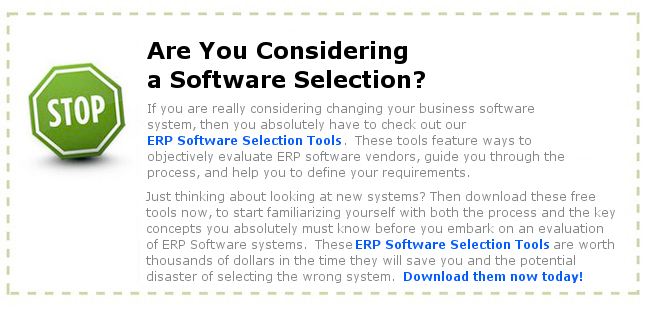Chris Shaul
With Google and Sun collaborating to bring a web based version of Open Office to consumers, Microsoft has now jumped into the web applications game, but with bigger plans than just an office suite. How about a web based ERP system from Microsoft?
Okay, now that is nothing new. There are plenty of html based ERP systems. Some such as Oracle, are purely a virtual application, being written in Java and launched from a browser. But with Microsoft planning this, the entire desktop and user applications may change. We may have only virtual applications in the future with you only licensing what you use and need. This includes running your company on a virtual, remotely hosted system. This, as mentioned, is not new. But the difference is that you would only need a computer with light processing power and an internet connection to literally run your financials and operations.
With a powerhouse like Microsoft pushing web applications, the future of computing will dramatically change. No more will you go down to the computer store and buy boxed software. You will log into your browser, find the application you want on the Internet, and then subscribe to do your wordprocessing, spreadsheets, companies financials, enter the latest customer orders, etc.
The independence you now have of choosing what is on your computer will diminish as a few market leading applications vendors host your software. The web and software in general are becoming more and more of a utility. Just as the electicity you buy, the cable tv you watch, and the gas that heats your food are all utilities, the web and all of its applications will soon be similar. The question is, who will control this utility? The DSL providers, the Software providers, the web hosting companies? We will probably see a shift in the landscape of Internet companies. Microsoft or some similar entity will begin buying the access control points to the internet. Time Warner is an example of an early adopter. Trying to own the content and the access. But when folks are using the ERP systems and the office suites of the web, then the megacorps will want to charge for the access to and the use of the content.
For now, the one thing that is working against these plans are the fact that most companies do not want someone else having control over their data. But as the costs are reduced to a utility point of view, it will only make sense to outsource. This unfortunately will put a lot of data into the hands of the “utility” companies. Think of the marketing info they could gain and what if your company’s data is not so secure? It is a brave new world that we are embarking upon. And to have an ERP system that is hosted, maintained, and monitored by an outside entity that is not in the business of hosting, but rather in the business of providing content and access is a rather scary nightmare. But for now it is okay. We have years before this becomes a reality…maybe.
Chris Shaul is a Sr. IT Consultant specializes about ERP selections and implementations.
